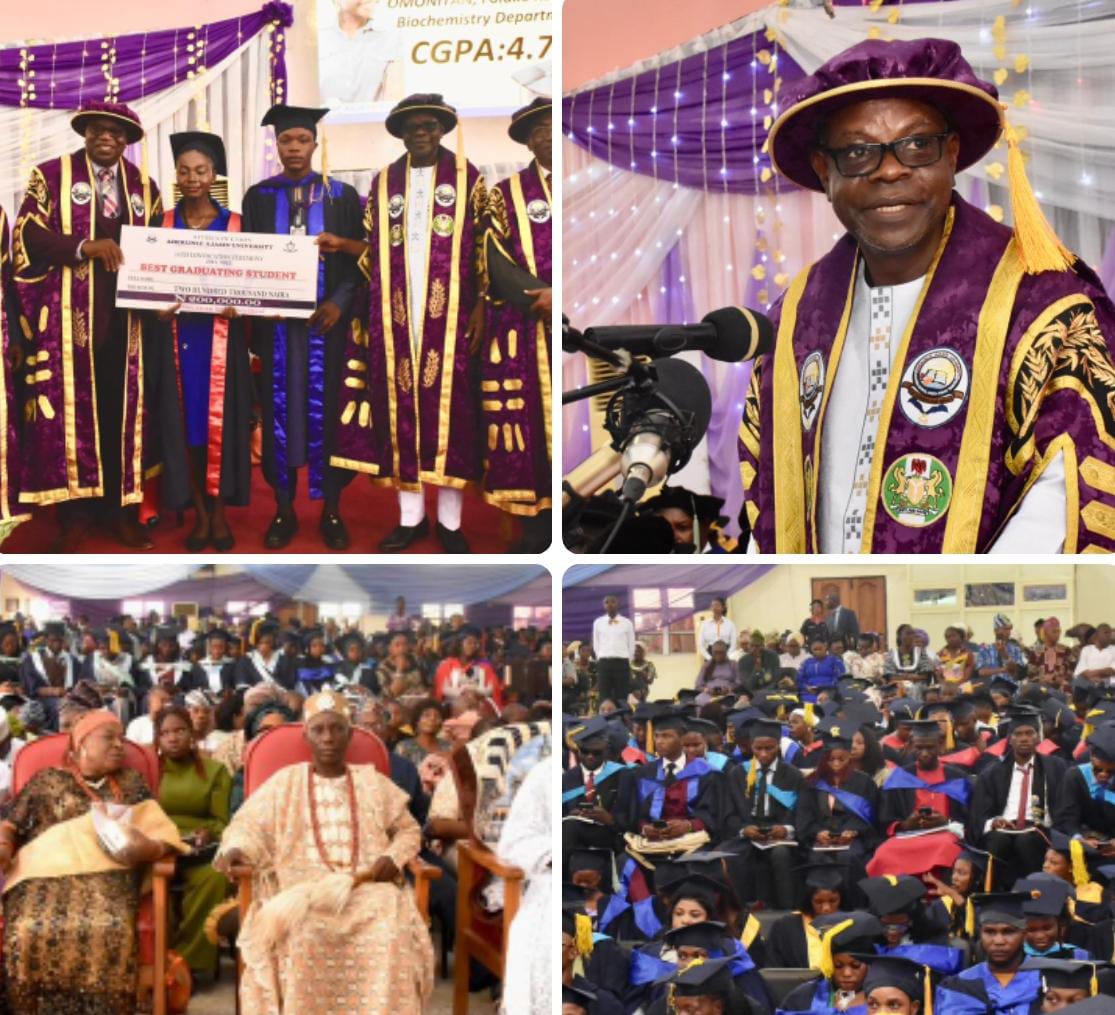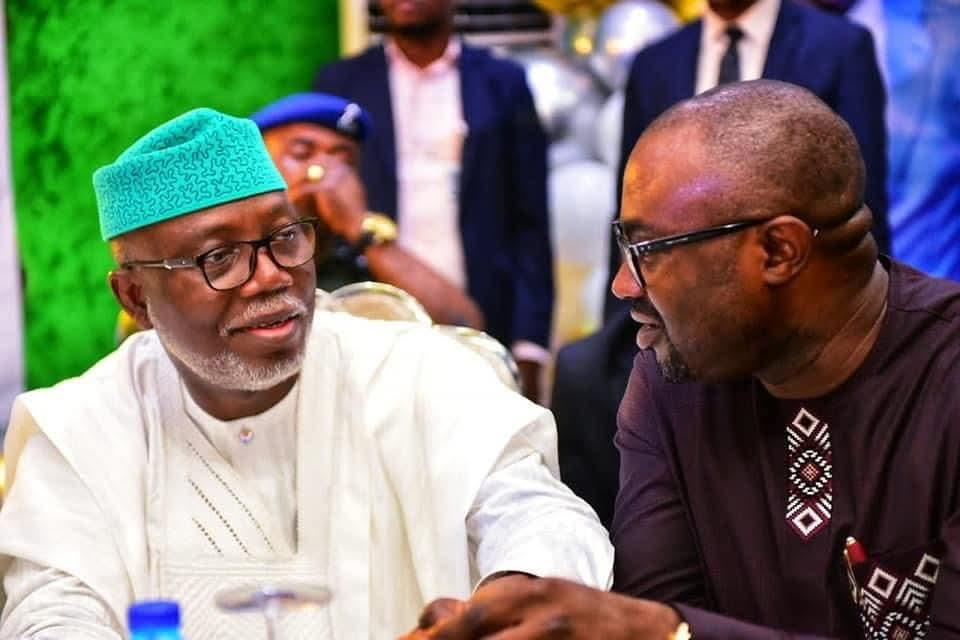CHIEFTAINCY CRISIS: IS DEJI OF AKURE THE PRESCRIBING AUTHORITY OVER THE ISIKAN STOOL?
By: Olaleye ‘Leye’ Babalola (Legal Practitioner)
Those close to me are aware that I am a big fan of the present Deji of Akure, Oba Ogunlade Aladetoyinbo. My friends and followers however know that I like to employ my professional practice solely in the defense of truth even when it appears that truth hurts or affects my interest.
I read a polite and beautifully written contribution on a Social Media platform this Sunday morning by a native of Akure who advocated that he is aware that Isikan has always had an Oba but that he believes that by virtue of a Supreme Court judgment, the Deji of Akure is now the prescribing authority and that the Deji may feel slighted if his consent is not sought in the appointment of an Iralepo.
As wise as this opinion is, it is actually at variance with the law. I will now itemize the succinct positions of law that will override all other emotional considerations as far as this current imbroglio is concerned.

- There is a Supreme Court ruling (not a judgment) that on its face value appears to strongly support the position of the Deji of Akure and those who support his actions.
- There is an Appeal Court judgment (this is the substantive judgment on this matter) of 6th March 2012 that on its face value appears to strongly support the position of the Deji of Akure and those who support his actions. That judgment on its face value precariously demoted the Iralepo and turn Isinkan into a quarter under Deji of Akure.
Analysis
The reader may have observed my repeated emphatic use of the phrase “on its face value” and the word “strongly”. This is deliberate. Any supporter of the Deji would jump in ecstasy upon reading that judgment except if that individual is a trained lawyer with strong knowledge of chieftaincy laws. The judgment did not only appear to seek to support the Deji but the assertions in the judgment were very generous in favour of the Deji.
A few examples such as the claim that there is nowhere in Yorubaland where there is more than one Oba in a town etc sure fly in the face of known facts when you superimpose that judgment on the facts of Abeokuta (Ogun State), Owo (Ondo State), Ikare (Ondo State) and several other towns with more than one Traditional Ruler or Oba.
Ditto is the assertion in the judgment that Isikan came to take refuge in Akure whereas documents from the palace of the Deji of Akure affirmed that Asodeboyede, the progenitor of the Deji arrived and met Isikan already on the land as owners. But I will restrict this intervention to only the issues concurred with by My Lords in order not to give the impression that the position of My Lords is being challenged.
Page 35 of the Court of Appeal judgment is quoted below inter alia
“Furthermore, whether or not to actually recognize the respondents (Iralepo and Osolo) in Part 1 of the Chiefs Law is clearly a FUNCTION (emphasis mine) of the 3rd respondent (The Governor of Ondo State)”.
“If the respondents (The Iralepo and the Osolo) are dissatisfied with the decision of the 3rd respondent, the proper step they should have taken is to revert back to the EXECUTIVE COUNCIL of the 3rd respondent for a review of the decision”.
These simple words have fundamental implications and impacts on the effective outcome of the matter! Those few words inserted in the judgment by My Lords’ Justices of the Appeal Court represent the Achilles’ heel of the putative import of that judgment to the Deji. Essentially, their Lordships did not mince words that it is not the place of the court to decide the status of a community. It is the sole administrative prerogative of the State Government.
That is, the Court of Appeal judgment on page 35 affirms the unassailable and statutory power of the Governor (3rd respondent) as the exclusive authority that can recognize a traditional ruler. The judgment also affirms the role of the State Executive Council as the sole authority to treat disputes arising therefrom through a review by the Council. It is simpliciter, the FUNCTION of the Governor and his Cabinet – the EXECUTIVE COUNCIL! Not only that, the respondent (the Iralepo) would apply to the Governor for redress and not the Deji. The Governor and his Executive Council thus have god-like authority over the matter and the rules guiding the matter.
Unbeknown to the Appeal Court, the Ondo State Executive Council, under the Chairmanship of the Governor, had, on 11th May 2005 taken a decision and declared the Iralepo of Isinkan Chieftaincy title in Akure South Local Government of Ondo State a recognized Chieftaincy to be known hereafter as the Iralepo of Isinkan in the said Akure South Local Government under Part I of the Chiefs Edict, 1984 as amended.
Effectively, the Ondo State Government separated Isikan completely from Akure as far as the Chieftaincy matter is concerned. Isikan thus has a status of an autonomous community as far as its chieftaincy matter is concerned. In fact, the Iralepo is now the prescribing authority in his domain. This is the fact of law.
In essence, the Iralepo of Isikan Chieftaincy draws its authority directly from the State Executive Council in conformity with the Chief Edict of 1984 and paradoxically is effectively in compliance with the very same Appeal Court judgment and the Supreme Court ruling that appeared to be intended to downgrade it. The legal implication of this is that rather than violating the judgment of the Court of Appeal which was in principle upheld by the Supreme Court, the Iralepo of Isikan’s independent selection by the kingmakers of Isikan indeed upheld and fulfilled that judgment!
Page 3 (item number 11 under Prescribed Authority) of the white paper of the Morgan Chieftaincy Review Commission of the Ondo state of Nigeria stated that Government accepts the commission’s recommendation that “there should be no Prescribed Authority over any recognized traditional ruler who, on his recognition, becomes a Prescribed Authority over minor Chiefs in his town”. As already stated, the only authority by law that can confer that recognition is the Governor of Ondo State and his Executive Council. Having conferred that recognition upon the Iralepo, the Ondo State Executive Council has effectively cured any perceived defect and has laid to rest any argument or debate about the status of the Iralepo as a duly recognized Traditional ruler. The Iralepo stool is therefore not subordinated under any other authority. The selection of an Iralepo would thus be carried out solely in accordance with the Iralepo of Isikan Chieftancy institution in Akure South Local Government that has been recognized by the Ondo State Executive Council.
My suspicion is that Governor Oluwarotimi Akeredolu led administration thoroughly studied the various issues and has extensively poured over the judgment, hence the presence of government officials from the Local Government as witnesses at the selection process organized by the kingmakers of Isikan. The government is no doubt aware of its enormous power. When Sanusi Lamido as Emir of Kano became overbearing, the Governor of Kano State through his Executive Council had the Kano Emirate split into five (5) and got the Kano State House of Assembly to back that with a law.
Implication on Akure’s Unity
Akure is getting smaller. It is obvious that the Deji of Akure and others who support the ceaseless fights and attempts to dominate or conquer neighbouring communities over chieftaincy matters are not aware. There are more news and reports of fights over chieftaincy matters involving the Deji of Akure than any other first-class Oba in Ondo State. Leveraging one’s position, influence, affluence, and connection to subjugate other people may work only briefly but can only yield a pyrrhic victory. Today, an Ita-ogbolu man who some 30 years ago happily identified as an Akure person does not want to so identify anymore. The people of Ijare, Ilara, Igbaraoke, Oba-Ile etc today would take offense if you refer to them as Akure. Something is awfully wrong and the elders of Akure must rise to stem the ugly tide.
There is no way the heritage of a community would be downgraded and the people would clap. When the Isikans kept quiet after the Deji announced earlier in the year that he has changed the Iralepo of Isikan from an Oba to a chief, I was alarmed because, while you can easily predict the move of someone that is shouting, it is difficult to predict the action of someone that keeps quiet. I fear that very shortly unless there is an urgent intervention to save the situation, the people of Isikan might rise that they should no longer be referred to as Akure.










